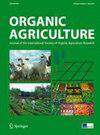有机食品的生态包装:理性决定还是情感影响?
IF 2.7
Q2 AGRICULTURE, MULTIDISCIPLINARY
引用次数: 1
摘要
可生物降解和可堆肥包装的引入是减少传统塑料使用的一个重要里程碑,特别是在优先考虑可持续性的部门,如有机食品行业。本研究探讨了影响选择这种包装的因素,特别关注意大利消费者代表性样本中的情感作用。对计划行为理论(TPB)和理性情绪模型(REM)两种模型进行了评价和比较。TPB模型证实了积极的态度、主观规范和感知行为控制会影响选择可生物降解和可堆肥包装的意愿。快速眼动显示,环境关注、认知利益和情绪显著影响购买意愿。与TPB模型相比,REM解释了更大的意图差异,强调了理性和情感成分相结合的重要性。可生物降解和可堆肥包装与有机食品的目标消费者很好地对齐,使其成为有机产品的极好解决方案。情绪在塑造消费者的意图和行为方面起着至关重要的作用。营销策略应该吸引消费者的情感反应,解决认知问题,并强调可持续包装的具体好处。本研究强调了生物塑料包装与有机产品的相关性,并强调了情绪在影响消费者行为中的重要性。本文章由计算机程序翻译,如有差异,请以英文原文为准。
Eco-packaging in organic foods: rational decisions or emotional influences?
Abstract The introduction of biodegradable and compostable packaging has been a significant milestone in reducing conventional plastic use, particularly in sectors that prioritize sustainability like the organic food industry. This study explores the factors influencing the selection of such packaging, with a specific focus on the role of emotions in a representative sample of Italian consumers. Two models, the Theory of Planned Behavior (TPB) and the Rational-Emotional Model (REM), were evaluated and compared. The TPB model confirms that positive attitudes, subjective norms, and perceived behavioral control influence the intention to choose biodegradable and compostable packaging. The REM reveals that environmental concern, cognitive benefits, and emotions significantly impact purchase intentions. The REM explains a greater variance in intention compared to the TPB model, highlighting the importance of combining rational and emotional components. Biodegradable and compostable packaging aligns well with the target consumers of organic food, making it an excellent solution for organic produce. Emotions play a crucial role in shaping consumer intentions and behaviors. Marketing strategies should appeal to consumers’ emotional responses, address cognitive concerns, and highlight the specific benefits of sustainable packaging. This research emphasizes the relevance of bioplastic packaging for organic products and underscores the significance of emotions in influencing consumer behavior.
求助全文
通过发布文献求助,成功后即可免费获取论文全文。
去求助
来源期刊

Organic Agriculture
Agricultural and Biological Sciences-Agricultural and Biological Sciences (all)
CiteScore
5.00
自引率
0.00%
发文量
35
期刊介绍:
Organic Agriculture provides a platform for the sharing of knowledge on all aspects of Organic Agriculture and Food Systems. The journal features scientific articles on a range of topics, including, but not exclusively:
- Soil
- Plant production
- Animal husbandry
- Farming system research and development
- Resource management
- Agro-ecology
- Value chains
- Processing
- Product qualities
- Socio-economics
- Consumer research and marketing
- Ethics
- Novel research methodologies
- Innovations in Organic Agriculture
Drawing on value chain and systems approaches within Organic Agriculture; the journal welcomes original inter-, intra- and trans-disciplinary papers alongside the reports of focused disciplinary studies that accord with the principles of Organic Agriculture. We also welcome papers which take a critical approach to one or more aspects of organic agriculture and/or initiate critical discussions of the principles on a scientific basis.
Papers with farming system comparisons are welcome. The journal does also cover scientific reviews, science-based concept notes, and invited papers on specific topics.
 求助内容:
求助内容: 应助结果提醒方式:
应助结果提醒方式:


